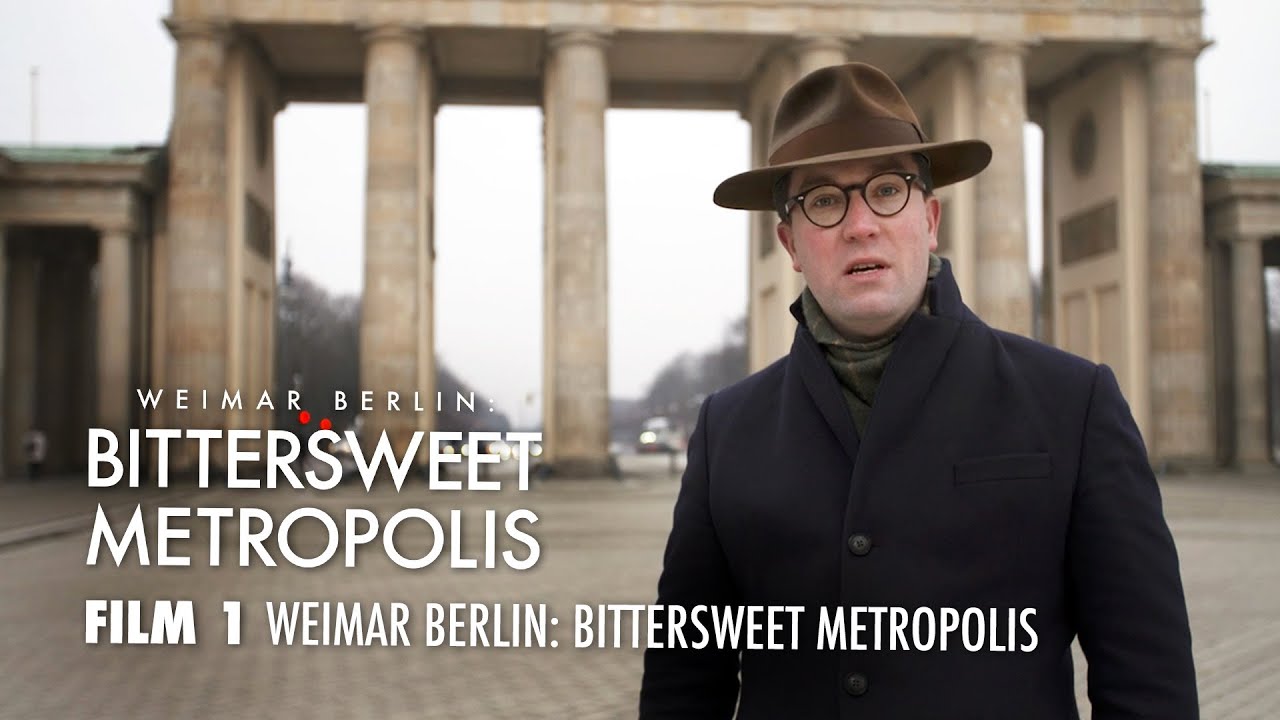The Beer Hall Putsch (1923)
Summary
TLDRThe Beer Hall Putsch on November 8th, 1923, was a pivotal moment in German history, reflecting the nation's political and economic turmoil. Adolf Hitler, capitalizing on widespread discontent, attempted a coup against the Weimar Republic. Despite initial failure, the subsequent trial turned Hitler into a national figure, ultimately shaping his strategy for power and foreshadowing his rise to Chancellor in 1933.
Takeaways
- ⚔️ The Beer Hall Putsch occurred on November 8, 1923, during a period of extreme political and economic instability in Germany.
- 📉 Hyperinflation in 1923 devastated Germany, with the German mark plummeting in value, causing widespread economic chaos.
- 🇫🇷 The Ruhr Valley, a critical industrial area, was occupied by the French due to Germany's failure to pay WWI reparations.
- 📜 The Treaty of Versailles deeply angered the German population, fueling political uprisings and extremist movements.
- 👁️ Adolf Hitler sought to overthrow the Weimar Republic, inspired by Mussolini's 1922 March on Rome.
- 🧠 Hitler's plan involved forcing Bavarian leaders to support him, but his early success at the Beer Hall quickly unraveled.
- 🎤 Despite initial opposition, Hitler’s speech at the Beer Hall won over the crowd with his nationalist rhetoric.
- 💣 The Putsch ultimately failed after a failed march through Munich, resulting in several deaths and Hitler's arrest.
- 🔒 Hitler's trial turned into a platform for him to promote his views, which increased his national prominence.
- 📚 Hitler only served nine months in prison, during which he wrote 'Mein Kampf' and shifted towards gaining power legally.
Q & A
What was the historical context of the Beer Hall Putsch in 1923 Germany?
-The interwar period in Germany was marked by extreme political and economic instability. The Weimar Republic was seen as weak, having already seen several Chancellors and government cabinets. The Ruhr Valley was under French occupation due to unpaid World War I reparations, and there were political uprisings across the country. The Treaty of Versailles and hyperinflation had caused widespread discontent among the German population.
Why were the French occupying the Ruhr Valley during the time of the Beer Hall Putsch?
-The French were occupying the Ruhr Valley to ensure payment of World War I reparations from Germany. This occupation was a significant source of tension and contributed to the unrest in the country.
What was the 'stab-in-the-back' myth mentioned in the script?
-The 'stab-in-the-back' myth was a belief among many Germans that the German government's acceptance of the Treaty of Versailles terms, which were seen as harsh, was a betrayal that led to Germany's defeat in World War I, rather than the military situation.
How did hyperinflation affect the German economy and society during 1923?
-Hyperinflation caused the German mark to plummet in value, leading to a loss of confidence in the currency. Money printed in larger amounts became worthless, and by December 1923, the mark had fallen to 4.2 billion to the dollar. This led to food shortages and people resorting to barter, using goods like coal or sausages as currency.
Who were the members of the Bavarian triumvirate that Hitler planned to coerce into joining his revolution?
-The Bavarian triumvirate consisted of General Commissar State Commissioner Gustav von Kahr, General Otto von Lossow, the commander of the Reichswehr in Bavaria, and Colonel Hans Ritter von Seißer, the head of the Bavarian State Police.
What was the original date planned for the Beer Hall Putsch, and why was it changed?
-The original date for the march was set for the 10th through the 11th of November. However, Hitler changed the plans to the 8th of November after discovering that Gustav von Kahr would be giving a speech at the Burgerbraukeller beer hall, providing an opportunity to capture all three members of the Bavarian triumvirate in one location.
How did Hitler attempt to gain the support of the Bavarian triumvirate during the Beer Hall Putsch?
-Hitler burst into the beer hall where Gustav von Kahr was speaking, fired shots into the air, and proclaimed the national revolution had begun. He then coerced von Kahr, von Lossow, and von Seißer into a side room at gunpoint, where he explained his intentions and tried to gain their allegiance by a mixture of exaggerations and outright lies.
What was the turning point that led to the failure of the Beer Hall Putsch?
-The turning point was when Hitler left the beer hall to attend to other matters, placing it under the command of General Ludendorff. In his absence, the three members of the Bavarian triumvirate renounced their support for Hitler's plan and left the beer hall.
How did the aftermath of the Beer Hall Putsch impact Adolf Hitler's future?
-Although the Beer Hall Putsch failed, the subsequent trial gave Hitler a platform to showcase his views to the German public. He was sentenced to a relatively short prison term during which he wrote Mein Kampf. This period also taught him the importance of following legal means to gain power, which he later employed successfully.
What was the significance of General Erich Ludendorff's involvement in the Beer Hall Putsch?
-Ludendorff was a prominent wartime leader and his involvement was intended to legitimize the Nazi position. Hitler planned to make him the commander of the Armed Forces after gaining power. His presence also lent credibility to the Nazi cause among nationalists.
Outlines

このセクションは有料ユーザー限定です。 アクセスするには、アップグレードをお願いします。
今すぐアップグレードMindmap

このセクションは有料ユーザー限定です。 アクセスするには、アップグレードをお願いします。
今すぐアップグレードKeywords

このセクションは有料ユーザー限定です。 アクセスするには、アップグレードをお願いします。
今すぐアップグレードHighlights

このセクションは有料ユーザー限定です。 アクセスするには、アップグレードをお願いします。
今すぐアップグレードTranscripts

このセクションは有料ユーザー限定です。 アクセスするには、アップグレードをお願いします。
今すぐアップグレード関連動画をさらに表示

8th November 1923: Adolf Hitler leads the Beer Hall Putsch in Munich, alongside General Ludendorff

Der Hitlerputsch 1923 und seine Folgen

Kristallnacht: Night Of Broken Glass

Tidak ada dibuku Pelajaran! Inilah 16 Fakta Dibalik Proklamasi Kemerdekaan Indonesia

Weimar Berlin: Bittersweet Metropolis (1/6)

Kurikulum 1947
5.0 / 5 (0 votes)
